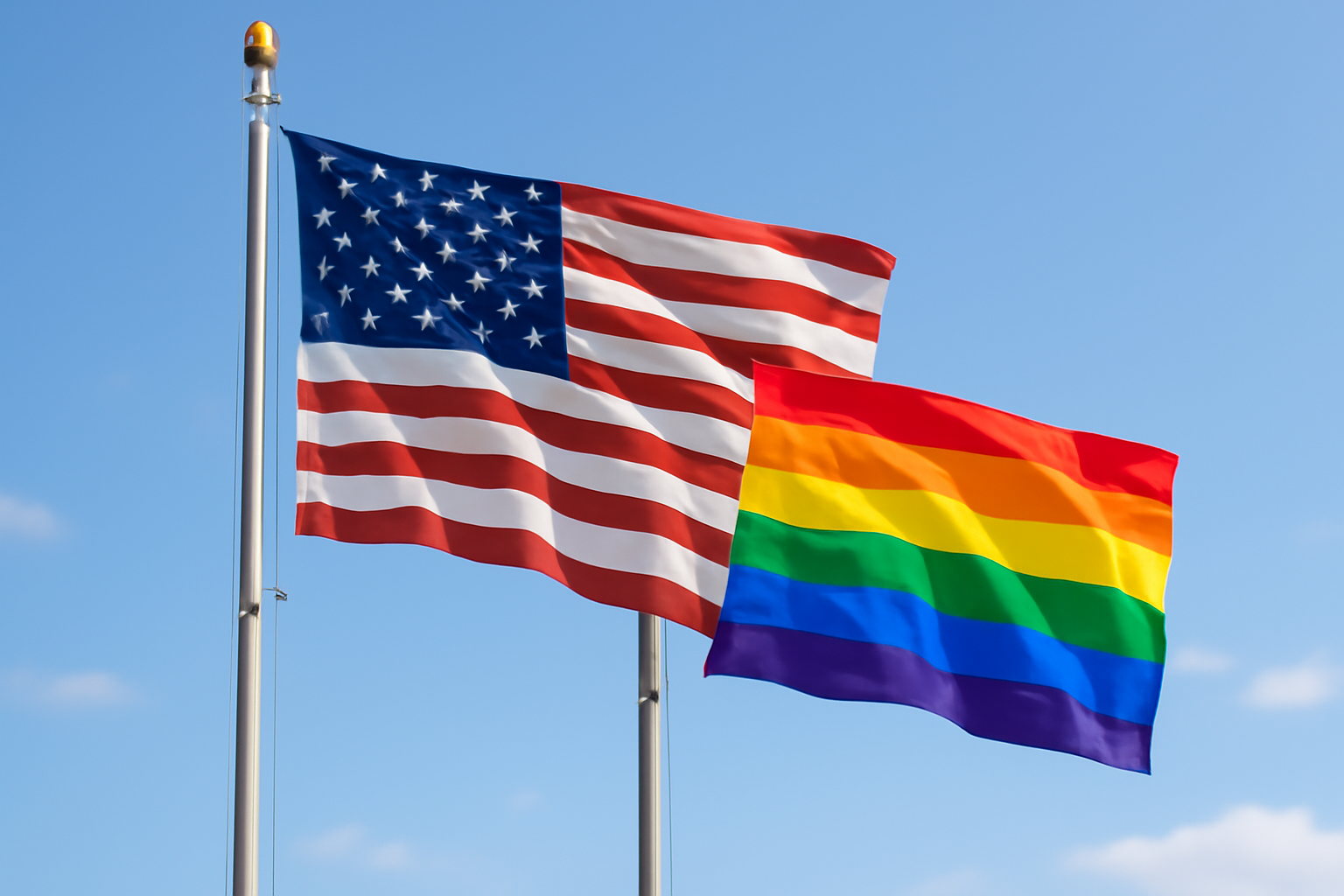
The U.S. government has implemented a new "One Flag Policy" which will standardize flag displays at U.S. embassies worldwide. Under this new directive, only the United States flag, the POW/MIA flag, and the Hostages and Wrongful Detainees flag may be flown. This policy is seen as a move to unify the flags flown at U.S. facilities both domestically and abroad, emphasizing a focus on American values of justice, liberty, and democracy.
The "One Flag Policy" and Its Implications
The "One Flag Policy," announced by Secretary of State Mark Rubio, states: "Only the United States of America flag is authorized to be flown or displayed at U.S. facilities, both domestic and abroad, and featured in U.S. government content." This decision signals a significant shift in the symbolism and messaging permitted at U.S. diplomatic missions.
For many years, the use of rainbow flags at embassies has been a contentious political issue, often dividing Republican and Democratic administrations. Democrats generally support flying the rainbow flag to promote human rights and LGBTQ+ rights internationally. In contrast, many Republicans, including Secretary Rubio, view these flags as unnecessary and not representative of all Americans.
Reactions from Political Figures
Representative Marjorie Taylor Greene celebrated the new policy, echoing sentiments from former President Donald Trump about "winning" in political battles. She has previously labeled LGBTQ+ flags and symbols as "Hate America flags" and criticized their presence at official U.S. sites.
The policy change follows previous attempts by Republicans to restrict the display of symbols such as the rainbow flag and the Black Lives Matter banner at U.S. embassies. These efforts reflect a broader political stance regarding the recognition of LGBTQ+ and social justice symbols within government contexts.
Historical Context and Previous Policies
During the Trump administration, a similar ban was enforced, preventing embassies from flying the rainbow flag during Pride Month. This decision was met with resistance, and some embassies chose to defy the directive by flying LGBTQ+ symbols to support diversity and inclusion.
In contrast, the Biden administration reversed these restrictions, allowing embassies to decide locally whether to display the rainbow flag based on "appropriate local conditions." Secretary of State Antony Blinken emphasized the importance of supporting LGBTQ+ rights and combating global violence against LGBTQ+ individuals during his tenure.
International and Domestic Impact
The new directive may impact diplomatic relations and how the U.S. is perceived in international human rights discussions. The symbolism of the rainbow flag, which represents LGBTQ+ pride and rights, has been a significant aspect of U.S. diplomatic support for LGBTQ+ communities worldwide.
Domestically, the policy reflects ongoing debates about the inclusion of LGBTQ+ rights within the broader American values framework. Critics argue that restricting the display of the rainbow flag diminishes the U.S.'s role as a promoter of human rights and may send a negative message to global LGBTQ+ communities.
Within the United States, the policy adds to the complex discussions about LGBTQ+ rights and representation in public and governmental spaces. Rubio, known for his opposition to equal rights for LGBTQ+ individuals, has previously supported measures such as banning same-sex couple adoptions and opposing federal anti-discrimination protections.
Looking Ahead
As the "One Flag Policy" takes effect, its implications will likely be felt across diplomatic and domestic political landscapes. The decision highlights the ongoing tension between promoting a unified national identity and acknowledging diverse voices and rights within and outside the United States.
The policy also serves as a reminder of the evolving nature of political symbolism and its role in shaping both internal policies and international perceptions. As debates continue, the impact of such decisions will be closely monitored by advocates and critics alike.
Stay informed about the latest developments impacting LGBTQ+ communities by subscribing to our newsletter, offering insights into political changes and their implications worldwide.
Tags: Marco Rubio, U.S. embassy policy, rainbow flag ban, LGBTQ+ rights, international diplomacy
Related Posts
Fantastic Four: First Steps Unveils Marvel's Powerful, Pansexual Hero
**The Fantastic Four: First Steps - A New Era Begins** *The Fantastic Four: First Steps* kicks off an exciting chapter in Marvel's cinematic universe by introducing a key player: Franklin Richards. This adaptation, much like its comic book inspiration, takes us on a journey as Franklin grows from a baby with mysterious abilities, eventually becoming one incredibly powerful character in Marvel's l [...]
The Evolution of NFL Draft Scouting Reports: From Vivid Descriptions to Bland Profiles
While scrolling through dating app profiles not too long ago, I came across some strikingly descriptive lines that caught my eye: - "V-shaped torso with a well-defined upper body, good bubble, developed calves, and good chest thickness." - "Muscular frame with well-developed arms, shoulders, and chest, thick thighs and calves, a tight waist and abdomen, and good bubble." - "Solid, thick build wit [...]
Rep. Andrea Salinas Advocates for the Protection of LGBTQ+ Crisis Support Line
A mother's mission: standing up For LGBTQ+ mental health When Rep. Andrea Salinas (D-OR) got a frantic call from her daughter, who identifies as a lesbian, she felt a wave a fear wash over her. Every parent knows that feeling—the desperate urge, almost an ache, that you have when your child's in pain. "It's harrowing being on that call, promising help when every instinct screams that you need m [...]